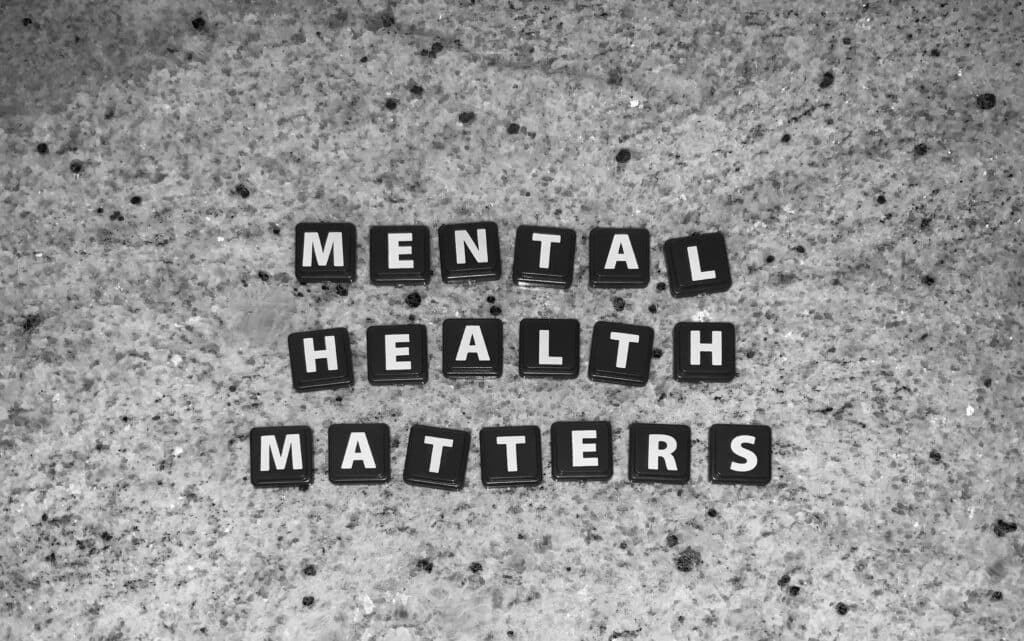It’s no secret that Canada is a land of vast opportunity. Canada has something to offer everyone, from its world-renowned cities to its pristine wilderness. But for all its advantages, Canada is not immune to mental health issues. In Calgary, in particular, depression is a major problem.
Everyone sometimes feels sad or down, but when these feelings persist and interfere with daily life, it may be depression. Depression is a serious but treatable illness. It can affect anyone, regardless of age, race, or income.
Depression affects millions of people around the world. Generally, depression is characterized by persistent feelings of sadness and emptiness, irritability and anger, loss of interest in activities once enjoyed, and difficulty concentrating, remembering, or making decisions. Other symptoms may include changes in weight or appetite, insomnia or excessive sleeping, fatigue, feelings of worthlessness or guilt, and thoughts of suicide. Depression can also cause physical problems, such as headaches and chest pain.
Depression can be caused by various factors, including genetics, chemical imbalances, traumatic life events, or medication side effects. It is essential to seek professional help to determine the cause of your depression and to receive the most effective treatment.
There are many effective treatments for depression, including medication, therapy, and lifestyle changes. With the help of a professional, you can get your life back on track and enjoy your life again.
This article will dive into different things about depression, including treatments and the possible use of compounded medications in treating depression.
- 1. The different faces of depression
- 2. What are the symptoms of depression?
- 3. What are the causes of depression?
- 4. When to seek professional help for depression
- 5. What are the treatments for depression?
- 6. Can kids get depression? If so, how can we treat them?
- 7. How to help a loved one who is suffering from depression
1. The different faces of depression
Depression manifests itself in different ways in different people. It can show up as sadness, apathy, anxiety, emptiness, irritability, or fatigue. It can make it hard to concentrate, make decisions, or enjoy life. Some people experience only a few of these symptoms, while others may experience many.
There are several different types of depression. Major depression is the most severe type and is characterized by intense symptoms that interfere with daily life for an extended time. Persistent depressive disorder (formerly known as dysthymia) is a less severe form of depression that could last for at least two years.
There are also several different causes of depression. Some people may be more prone to depression due to their genes or biology. Life stressors such as a death in the family, a job loss, or a divorce can also trigger depression. Substance abuse, thyroid problems, and certain medical conditions can also cause it.
Depression can be effectively treated with medication, therapy, or a combination. With treatment, most people can manage their symptoms and enjoy a better quality of life.
2. What are the symptoms of depression?
The symptoms of depression can vary from person to person but may include:
- feelings of hopelessness, despair, and worthlessness;
- loss of interest in activities that were once enjoyable;
- insomnia or excessive sleeping;
- changes in appetite;
- fatigue; and
- difficulty concentrating.
Some people may also experience suicidal thoughts. Depression can be treated with medication and/or therapy.
3. What are the causes of depression?
There are many different causes of depression. Some people may be more likely to develop depression because of their genes or life experiences. But some types of depression can also be caused by chemical imbalances in the brain. Strangely enough, some types of depression may be caused by insufficient vitamin D levels (You can test your vitamin D levels at home using MediSure rapid test kit).
Depression is often treated with medication, therapy, or a combination of the two. With treatment, many people with depression can improve their mood and feel better.
4. When to seek professional help for depression
If you are experiencing any of the following symptoms, it is important to seek professional help:
- Persistent sadness or emptiness
- Loss of interest in activities you once enjoyed
- Feelings of guilt, worthlessness, or helplessness
- Insomnia or excessive sleeping
- Fatigue or loss of energy
- Appetite changes, either overeating or loss of appetite
- Thoughts of suicide or suicide attempts
Left untreated, depression can be deadly.
5. What are the treatments for depression?
There are many treatments for depression available in Calgary and all over Canada. Some people may benefit from medication, while others may benefit from therapy or both. Working with a qualified healthcare professional to find the best treatment for you is vital.
There are many different medical treatments for depression. Some of the most common treatments include medication, therapy, and lifestyle changes.
Medication is often the first line of treatment for depression. A variety of medications can be used, including antidepressants, anti-anxiety medications, and mood stabilizers. Working with a doctor to find the best medication for you is important.
Therapy is also a common treatment for depression. There are various therapies that can be used, including cognitive-behavioural therapy, interpersonal therapy, and dialectical behaviour therapy. Therapy can help you understand and manage your depression.
Lifestyle changes can also help treat depression. Some changes that may be helpful include getting regular exercise, eating a healthy diet, getting enough sleep, and avoiding alcohol and drugs.
6. Can kids get depression? If so, how can we treat them?
Depression in children is a very real and serious issue. It can affect kids of any age, gender, or background. While depression is more common in teenagers, it can also occur in younger children.
There are many different signs that a child may be suffering from depression. Some of these include changes in eating habits, sleeping habits, withdrawing from friends and activities, feeling irritable or hopeless, and feeling excessively guilty or worthless.
If you think your child may be suffering from depression, it is crucial to get them help. Many different treatments are available, including therapy, medication, and lifestyle changes.

Depression can be a severe issue for kids, but it can also be treated. If you think your child may be suffering from depression, please get them help.
Typically, the most important line of help is to see a doctor. If the doctor identifies the possibility of depression, he would refer you and your child to a psychiatrist.
If your psychiatrist diagnosed your kid with depression, do not be afraid; there are treatments and medications for depression for every age. Based on the psychiatric diagnosis, he may begin with therapies such as cognitive-behavioural treatment as discussed before, or he might jump directly to prescribing medication or do a combination of both.
Kids normally won’t be able or like to take pills, so a compounded medication that is prepared by a compounding pharmacy would be of much help here. Chaparral Pharmacy – Remedy’sRx can compound most of the depression medications into a form that is likeable and acceptable by kids (and even adults who don’t like to take pills). Prescribed medications could be compounded into liquid suspension, and flavours could also be added.
Compounding depression medications is also very beneficial when the doctor/psychiatrist wants to begin with small and gradual doses (that are not commercially available). Also, compounding is good in tapering and gradually decreasing initially large depression medication doses.
If you need to talk to someone regarding your kids if they have suicidal thoughts or are showing symptoms of depression, you can call Kids Help Phone at 1-800-668-6868.
7. How to help a loved one who is suffering from depression
If you are concerned that a loved one is suffering from depression, there are many ways that you can help. The most important thing is to be supportive and understanding. You can’t “fix” someone else’s depression, but you can provide a listening ear and a shoulder to cry on.
It’s also important to be aware of the warning signs of suicide, such as talking about wanting to die or hurt oneself, expressing feelings of hopelessness, or withdrawing from friends and activities. If you notice any of these warning signs, getting help immediately is important.
If you are in Canada, the suicide prevention hotline is 1-833-456-4566. If you are in Alberta, the AHS mental health helpline is 1-877-303-2642.
Thanks for reading this blog post. If you like it, please share it using the buttons below with your friends, family, and colleagues.
References:




